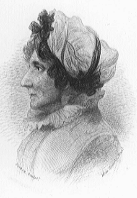
Anna Laetitia Barbauld was a prominent English poet, essayist, literary critic, editor, and author of children's literature. A prominent member of the Blue Stockings Society and a "woman of letters" who published in multiple genres, Barbauld had a successful writing career that spanned more than half a century.
This article contains information about the literary events and publications of 1747.
Harriet Lee was an English writer and novelist, born in London in 1757, and died near Briston at Clifton, England, on August 1, 1851. Her father, John Lee, was an actor and theatrical manager who died in 1781, her mother, name unknown, was also an actress. Additionally, she was the sister of Sophia Lee (1750–1824), a notable dramatist.

Dame Emilie Rose Macaulay, was an English writer, most noted for her award-winning novel The Towers of Trebizond, about a small Anglo-Catholic group crossing Turkey by camel.
Elizabeth Polack was an English playwright of the 1830s, notable for being the first Jewish woman melodramatist in England.

Jane Marie Scott (1779–1839) was a British theatre manager, performer, and playwright.

Edward James Loder was an English composer and conductor. His best remembered work is perhaps the 1855 opera Raymond and Agnes, though his most successful opera during his lifetime was The Night Dancers.
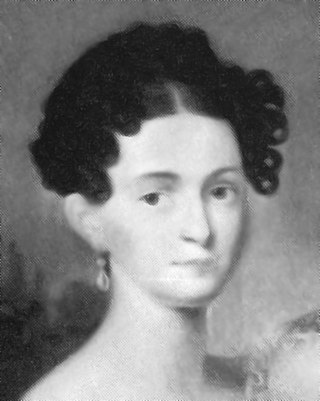
Princess Louise of Saxe-Hildburghausen was a member of the House of Saxe-Hildburghausen, and a Princess of Saxe-Hildburghausen by birth. Through her marriage to William, Duke of Nassau, Louise was also a member of the House of Nassau-Weilburg and duchess consort of Nassau. Louise was briefly princess consort of Nassau-Weilburg in 1816.
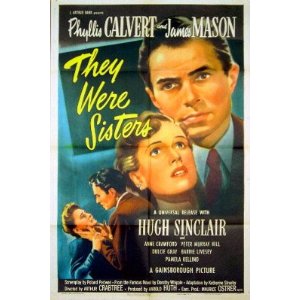
They Were Sisters is a 1945 British melodrama film directed by Arthur Crabtree for Gainsborough Pictures and starring Phyllis Calvert and James Mason. The film was produced by Harold Huth, with cinematography from Jack Cox and screenplay by Roland Pertwee. They Were Sisters is noted for its frank, unsparing depiction of marital abuse at a time when the subject was rarely discussed openly. It was one of the Gainsborough melodramas.
Margaret Harvey (1768–1858) was an English poet and scholar from Newcastle, England. Her father was a surgeon from nearby Sunderland; however, she did not live with him. Harvey was known to have a "remarkable energy of character" through both her writing and overall being. She is most known for her poetry, although she did write plays as well. Harvey died on 18 June 1858 at 27 Villiers Street in Bishop Wearmouth.

Elizabeth Scot Yorke, Countess of Hardwicke was a British playwright and member of the aristocracy.
The Haunted Inn is a 1828 melodrama by the British writer Richard Brinsley Peake. It was first acted at the Theatre Royal, Drury Lane and was part of a group of plays that used a country inn as a setting for sinister or threatening events.
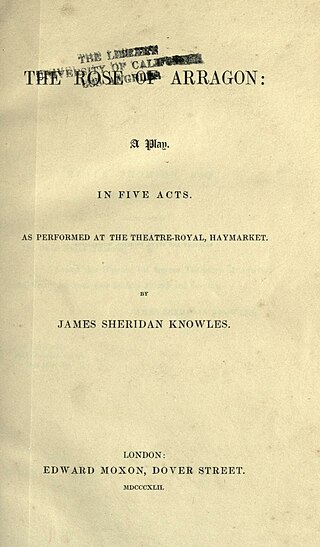
The Rose of Arragon is an 1842 tragedy by the Irish-born writer James Sheridan Knowles. It premiered at the Theatre Royal, Haymarket in London on 4 June 1842. The cast included Ellen Kean as Olivia, Charles Kean as Alasco, Henry Howe as the King of Arragon, Samuel Phelps as Almargo and Frederick Vining as Velasquez. It was similar in style to Knowles' earlier work The Wife of Mantua. In 1849 William Creswick opened his actor-management of the Surrey Theatre by playing Alasco in a revival.

Julian is an 1823 historical tragedy by the British writer Mary Russell Mitford. It premiered at the Theatre Royal, Covent Garden on 15 March 1823. The original cast included William Macready as Julian, Maria Foote as Alphonso, King of Sicily, George John Bennett as Duke of Melfi, William Abbot as Count D'Alba, Daniel Egerton as Leanti, William Chapman as Calvi, Thomas Comer as Bertone and Maria Lacy as Annabel. Mitford wrote the play during the delays over the staging of her previous work Foscari which finally premiered in 1826. It is influenced by the 1820 rebellion on Sicily and its defeat and repression by Bourbon forces.

Foscari is an 1826 historical tragedy by the British writer Mary Russell Mitford. The plot revolves around Francesco Foscari, the son of the Doge of Venice, who is wrongly accused of murder and has to go into exile. It premiered at the Theatre Royal, Covent Garden on 4 November 1826. The original cast included Charles Mayne Young as Foscari, Doge of Venice, Charles Kemble as Francesco Foscari, James Prescott Warde as Count Erizzo, and Daniel Egerton as Donato.

Rienzi is an 1828 historical tragedy by the British writer Mary Russell Mitford. It is based on the fourteenth century Italian political leader Cola di Rienzo. It premiered at the Theatre Royal, Drury Lane on 9 October 1828. The original cast included Charles Mayne Young as Cola di Rienzi, John Cooper as Angelo Colonna, George Yarnold as Paolo, and Harriet Faucit as Lady Colonna. It was Mitford's most successful play and for 34 nights from October to December 1828, and then appeared frequently in the United States.

The Vespers of Palermo is an 1823 historical tragedy by the British writer Felicia Hemans. It premiered at the Theatre Royal, Covent Garden on 12 December 1823. The original cast included Charles Mayne Young as Count Di Procida, Charles Kemble as Raimond Di Procida, George John Bennett as Eribert, Frederick Henry Yates as Montalba, William Chapman as Anselmo, Thomas Comer as De Couci, William Claremont as Villager, Sarah Bartley as Vittoria and Frances Harriet Kelly as Constance. It is set against the backdrop of the Sicilian Vespers uprising of 1282 and, like Mary Russell Mitford's Julian of the same year, is strongly influenced by the early stages of the Risorgimento in Italy. Both draw links between Classic or Medieval repression with the defeat of Sicily's failed 1820 uprising against Bourbon rule.

Charles the First is a historical tragedy by the British writer Mary Russell Mitford. It depicts the imprisonment and trial of Charles I before his execution in 1649 following his defeat in the English Civil Wars. It was first written in 1825 and originally intended to be performed at Covent Garden. Mitford wrote the play with the encouragement of William Macready and Charles Kemble, the two leading performers at Covent Garden. However, the politically controversial top of regicide led to it being refused a licence by the Lord Chamberlain, the Duke of Montrose.
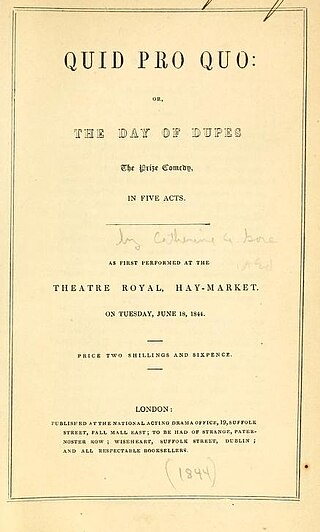
Quid Pro Quo is an 1844 comedy play by the British writer Catherine Gore, best known for her novels. It premiered at the Theatre Royal, Haymarket in London on 18 June 1844. The original cast included Louisa Cranstoun Nisbett as Lord Bellamont, Robert Strickland as Jeremy Grigson, John Buckstone as Captain Sippet, William Farren as Sir George Mordent, Henry Howe as Rivers, Julia Bennett as Lady Mary Rivers, Julia Glover as Mrs. Grigson, Mrs. Edwin Yarnold as Ellen and Anne Humby as Bridget Prim. The prologue was spoken by Benjamin Webster. The play was selected in a competition by a special committee led by Charles Kemble out of ninety six entries, for which Gore was rewarded with £500.

The School for Coquettes is an 1831 comedy play by the British writer Catherine Gore, best known for her silver fork novels, for whom it was her theatrical debut. It premiered at the Theatre Royal, Haymarket in London on 14 July 1831. The original cast included John Cooper as Lord Marston, William Farren as General Lumley, Frederick Vining as Frederick Lumley, Henry John Wallack as Howard, Benjamin Nottingham Webster as Ralph, Julia Glover as Lady Hampton and Harriette Taylor as Lady Honoria Howard. The play was a great success, running for 37 performances and being revived the following year.















